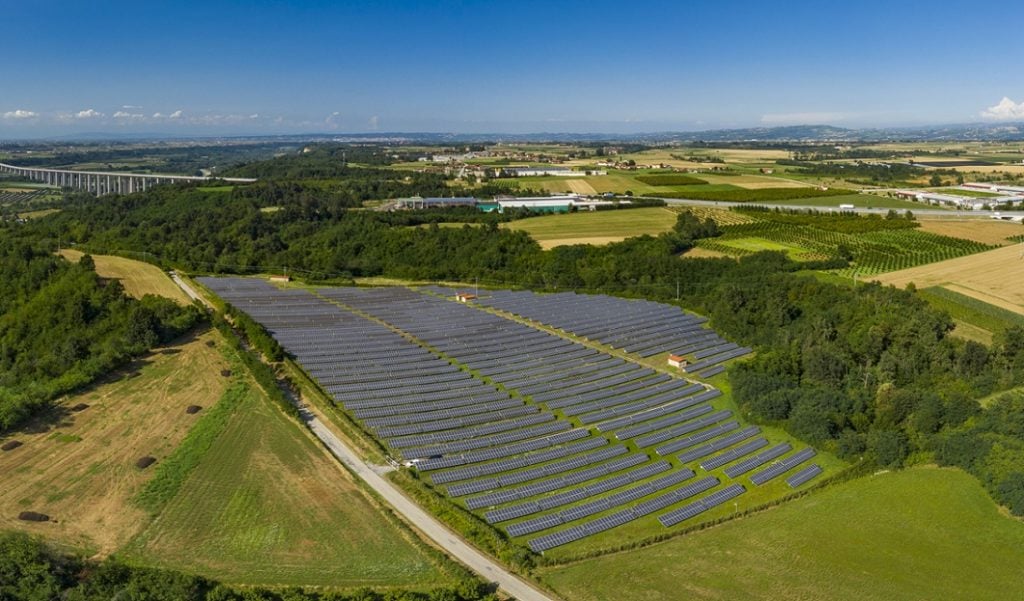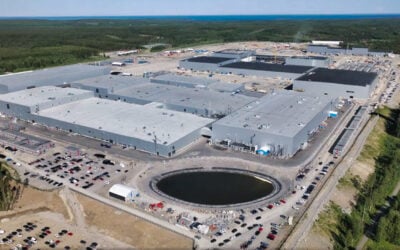
A total of 71GWh of new grid-scale energy storage needs to be deployed in Italy by 2030 for it to decarbonise its energy system in line with the EU targets.
Transmission system operator (TSO) Terna released its ‘Study on Reference Technologies for Electricity Storage’ report last week (10 August), one of the requirements under a recent resolution from energy regulator ARERA.
The report is a deep-dive into the suitability of different technologies for deploying the 71GWh of new large-scale energy storage that Terna forecasts Italy will need to decarbonise its energy system in a ‘Fit-for-55’ scenario. Fit-for-55 is the EU’s goal of reduce greenhouse emissions by 55% by 2030.
Terna added that the average power rating of the 71GWh will need to be one-eighth of the energy storage capacity, meaning a total power rating of the new energy storage capacity of 8.875GW. The 8.875GW/71GWh is in addition to distributed energy storage resources and large-scale projects already procured through past capacity market and ancillary service auctions.
Try Premium for just $1
- Full premium access for the first month at only $1
- Converts to an annual rate after 30 days unless cancelled
- Cancel anytime during the trial period
Premium Benefits
- Expert industry analysis and interviews
- Digital access to PV Tech Power journal
- Exclusive event discounts
Or get the full Premium subscription right away
Or continue reading this article for free
However, it added the figures may change: “The actual needs for new storage capacity (GWh) to be procured by the new mechanism will have to be re-evaluated over time, taking into account the actual development and geographical location of renewable energy sources in Italy.”
The TSO said that energy storage will provide time-shifting and grid services to ensure the security and adequacy of its electricity system. Storage will make it possible to shift the production of intermittent renewables from high-production hours to those with low or no production.
Legislative Decree No. 210/2021, passed in early 2022, allows for the introduction of a new mechanism for the TSO to procure in advance new energy storage capacity, to be finalised in the coming months with the first auctions expected in late 2023/early 2024.
Terna’s report identified seven reference technologies: lithum-ion, pumped hydro energy storage (PHES), compressed air energy storage (CAES), non-lithium ion electrochemical storage (flow etc), power-to-gas-to power storage (green hydrogen etc), electrostatic or magnetic storage and electromechanical flywheel storage.
The report went on to detail the different durations, performance, availability, lifetime, lead time, round-trip efficiency (RTE), technological and commercial maturity, investment and operating costs and risks of these different technologies and their suitability for Terna’s needs.
It didn’t make any firm conclusions at the end, however towards the state it did say that lithium-ion and PHES are the two main reference technologies because of their technological and commercial maturity and both “can offer the services required for the integration of renewables and the efficient operation of the electricity system”.
Energy-Storage.news did a deep dive into Italy’s burgeoning grid-scale energy storage market for Vol.35 of PV Tech Power, Solar Media’s quarterly technical journal for the downstream solar and storage industries.
Since it was published, gigawatt-sized pipelines have been announced by developers Emeren and Matrix Renewables, Altea Green Power and Eku Energy in partnership with Renera, while UK-based Aura Power got final approval for an 800MWh project, one of the largest in development.
See all Italy news here and read Terna’s report here.





